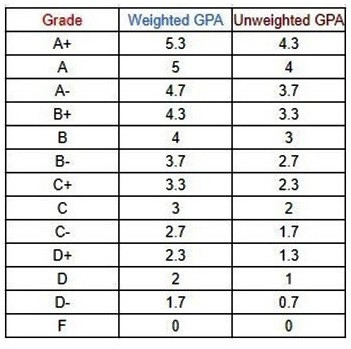Have you ever found yourself confused by the difference between “weighed” and “weighted”? It’s a common linguistic dilemma that trips up even the most seasoned writers. I remember being puzzled by this myself when I first started writing professionally. I’d often find myself second-guessing which word to use, feeling uncertain about the subtle nuances between the two. In this article, we’ll delve into the depths of this seemingly simple but often confusing distinction, exploring the historical roots, the precise meanings, and the most effective ways to utilize these words in your writing.

Image: www.vrogue.co
Mastering the difference between “weighed” and “weighted” is crucial for accurate and impactful communication. It’s about more than just grammar; it’s about using the right word to convey the right meaning. Let’s unveil the secrets behind these seemingly interchangeable terms and unlock their full potential in your writing.
The Difference Between Weighed and Weighted
The terms “weighed” and “weighted” both stem from the concept of measuring something’s weight, but they carry different meanings and implications. To understand this distinction, we need to explore their individual definitions and applications.
Weighed
“Weighed” is the past tense and past participle of the verb “to weigh.” It refers to the act of determining the heaviness of an object using a scale or balance. This word is used in a literal sense, focusing on the physical act of measurement. For example, you might say:
- “The doctor weighed the baby to track its growth.”
- “The produce was carefully weighed at the grocery store.”
Weighted
“Weighted” refers to something that has been made heavier or more significant by the addition of weight or importance. It implies a deliberate shift in balance or influence. This word takes on a more metaphorical meaning, suggesting a change in the overall impact of something. Examples include:
- “The survey was weighted to give a more accurate representation of the population.”
- “The teacher gave a weighted average to emphasize the importance of participation grades.”

Image: www.youtube.com
The Significance of the Distinction
Understanding the difference between “weighed” and “weighted” is essential for clear and precise communication. When you use the wrong word, it can lead to confusion and misinterpretations. For example, if you say “the evidence was weighted against the defendant,” you are implying that the evidence was intentionally given more importance or influence. However, if you meant simply that the evidence was assessed and considered, the correct phrase would be “the evidence was weighed against the defendant.” This subtle difference can have a significant impact on the meaning of your writing.
Moreover, using “weighted” in a metaphorical sense allows you to add nuance and depth to your writing. It can help you describe complex concepts and ideas in a more engaging and memorable way. For instance, instead of simply stating that something is important, you can say it is “weighted heavily.” This simple shift adds a sense of emphasis and underscores the significance of the idea.
Tips for Using Weighed and Weighted Effectively
Here are some tips to guide you in correctly using “weighed” and “weighted” in your writing:
- Consider the context: Analyze the specific situation and think about whether you are referring to a physical act of measurement or a metaphorical shift in significance.
- Pay attention to the object of the verb: If you are describing something being measured, use “weighed.” If you are describing something being made heavier or more significant, use “weighted.”
- Avoid redundancy: While “weighted down” is acceptable, “weighed down with weight” is redundant. Choose the simplest and most effective wording.
Remember, using the right word can elevate your writing and make your message more impactful. By understanding the subtle differences between “weighed” and “weighted,” you can ensure your writing is clear, precise, and impactful.
Frequently Asked Questions
Q: Can “weighted” be used in a literal sense?
A: Technically, “weighted” can be used in a literal sense, but it’s less common. For example, you might say “weighted average,” which refers to a calculation that gives more importance to certain values. However, “weighed” is the more appropriate choice when describing the physical act of measuring weight.
Q: Is there a difference between “weighed down” and “weighted down”?
A: Both “weighed down” and “weighted down” are used to describe something that is burdened by weight. However, “weighted down” often implies a metaphorical sense of being burdened by worries, responsibilities, or other pressures, while “weighed down” can have both literal and metaphorical meanings.
Weighed Vs Weighted
Conclusion
Understanding the difference between “weighed” and “weighted” is crucial for clear and effective communication. Choosing the right word can enhance your writing by adding nuance and precision. By keeping in mind the context of your writing and the meaning you wish to convey, you can confidently use these words to make your writing more impactful and memorable.
Do you find understanding the difference between “weighed” and “weighted” helpful? Let us know your thoughts and experiences in the comments below. We’d love to hear from you!





